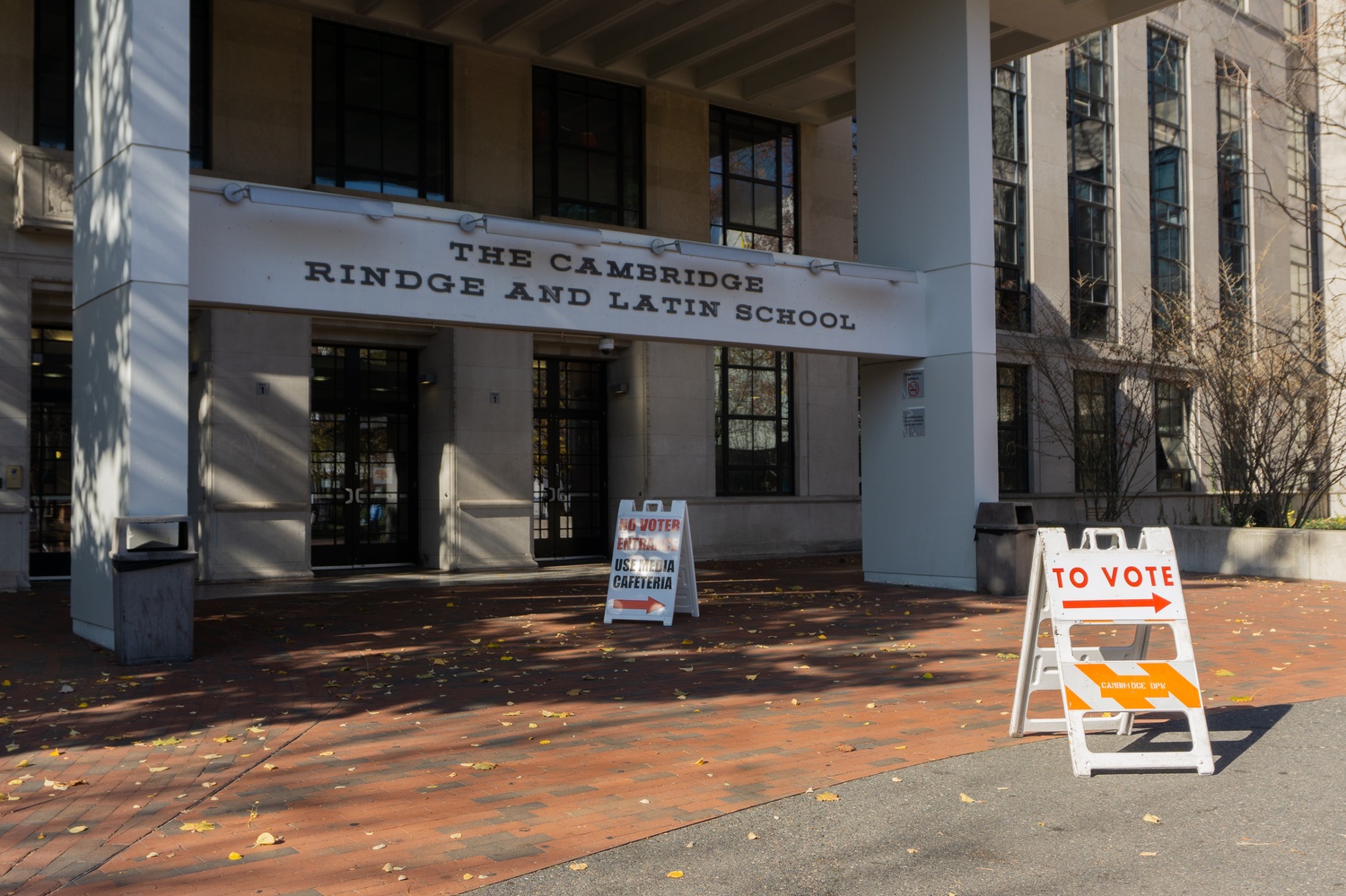
News
Nearly 200 Harvard Affiliates Rally on Widener Steps To Protest Arrest of Columbia Student

News
CPS Will Increase Staffing At Schools Receiving Kennedy-Longfellow Students

News
‘Feels Like Christmas’: Freshmen Revel in Annual Housing Day Festivities

News
Susan Wolf Delivers 2025 Mala Soloman Kamm Lecture in Ethics

News
Harvard Law School Students Pass Referendum Urging University To Divest From Israel
Massachusetts Voters Approve Proposition to Eliminate MCAS Graduation Requirement

Updated November 6, 2024, at 12:08 p.m.
Massachusetts voters approved a contentious ballot question to eliminate the Massachusetts Comprehensive Assessment System exam as a graduation requirement on Tuesday, marking a major victory for the state’s teachers union.
The results for the closely-watched race, called around 4:00 a.m. by the Associated Press, mean that tenth grade students will no longer need to receive a passing score on the exam to graduate for the first time in 20 years. Nearly 60 percent of residents voted “yes” as of early Wednesday morning with 87 percent of votes counted, according to the AP.
The debate over the test divided Cambridge residents and voters across the Bay State, drawing endorsements from celebrities and political powerhouses and racking up more than $21 million in donations from both sides.
The proposition’s supporters, led by the Massachusetts Teachers Association, have said that the test is stressful and demoralizing — disproportionately affecting students of color, students with disabilities, and students from low-income backgrounds.
But critics of the proposition say that without statewide standards, these same students often fall through the cracks. They argue the exam holds teachers and schools accountable and makes expectations consistent across districts and demographics.
In an email to The Crimson Wednesday morning, Dominic Slowey, a spokesperson for the opposition campaign, said the decision to eliminate the requirement without a clear replacement was “reckless.”
“The passage of Question 2 opens the door to greater inequity; our coalition intends to ensure that door does not stay open,” Slowey wrote.
Slowey added that “elected officials, teachers, parents, students, and business groups” need to take a comprehensive look at establishing statewide graduation standards to prepare students for college and the workforce.
“We hope the teachers unions will join us in that effort,” he wrote.
In Cambridge, only 37 students did not receive a diploma due to failing the MCAS over the past 11 years. Of them, only 8 percent were white and 56 percent had an Individualized Education Plan, according to a memo from interim Superintendent David G. Murphy obtained by The Crimson.
The question split local officials and scores of parents and educators, who had competing ideas of how the measure would impact the city’s long fight to close racial and socioeconomic achievement gaps in its schools.
At the Cambridge Rindge and Latin School polling station, some residents who voted for the proposition said that the current standard cut against equity goals in Cambridge Public Schools.
“We are treating it like it’s an equitable test and that it demonstrates how you will do in the future, which is not true,” Grace Kyrk said.
Tracie Konopinski, a clinician at the Cambridge Health Alliance, said that the requirement was harmful to students’ overall career prospects.
“A high school diploma is really needed for any post-secondary education or even a lot of jobs,” she said. “That’s like the ticket to success now, and we shouldn’t be using a flawed system to grade that.”
But Riley P. Malone ’23, who voted against the proposition, said that the state needed “some sort of standardized measure” in its schools.
“My hope for the future — down the road — is that we don’t have a system in which we need some sort of state testing,” she said. “But I think right now, we do need it.
—Staff writer Grace E. Yoon contributed reporting.
—Staff writer Darcy G Lin can be reached at darcy.lin@thecrimson.com.
—Staff writer Emily T. Schwartz can be reached at emily.schwartz@thecrimson.com.
Want to keep up with breaking news? Subscribe to our email newsletter.
Most Read
- Harvard President Alan Garber Abruptly Cancels Spring Break Trip to India
- Longtime Campus Rabbi Getzel Davis Resigns From Harvard Hillel
- As Trump Slashes Federal Grants, the Harvard School of Public Health Has the Most To Lose
- Harvard Has To Make Up Its Mind About General Education
- I’m Glad Harvard Expanded Aid. Now It’s Time To Increase Access.
From Our Advertisers

Over 300+ courses at prestigious colleges and universities in the US and UK are at your disposal.

With innovative financial tools combined with financial education, Collegiate empowers students to take control of their finances and build confidence in their money management skills.

Serve as a proctor for Harvard Summer School (HSS) students, either in the Secondary School Program (SSP), General Program (GP), or Pre-College Program.

With an increasingly competitive Law School admissions process, it's important to understand what makes an applicant stand out.

Welcome to your one-stop gifting destination for men and women—it's like your neighborhood holiday shop, but way cooler.

Admit Expert is a premium MBA admissions consulting company, helping candidates secure admission to top B-schools across the globe with significant scholarships.
